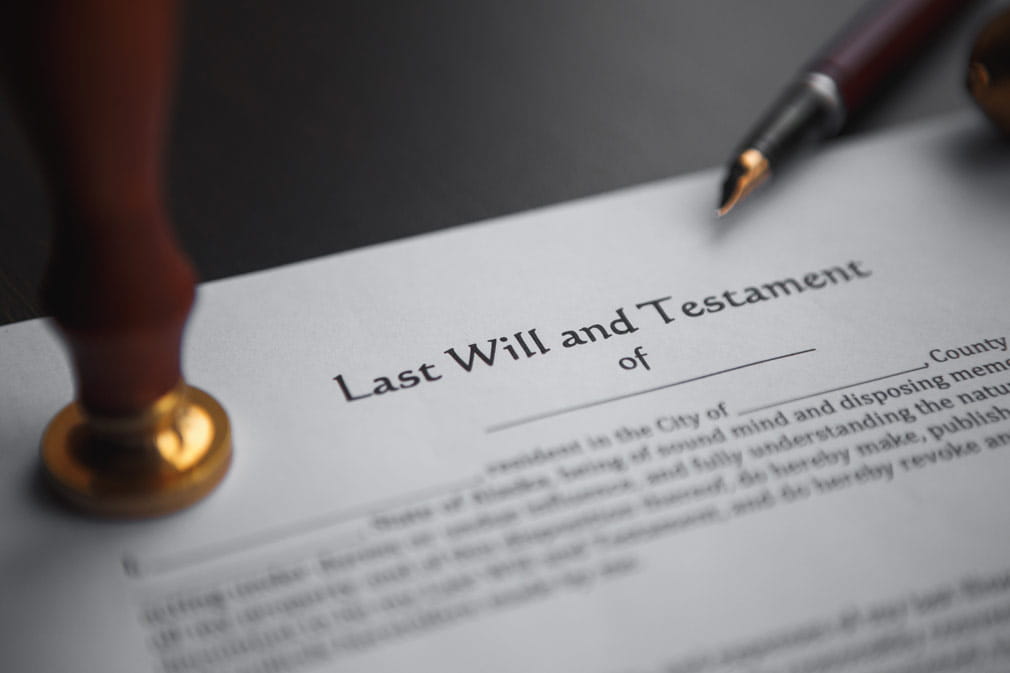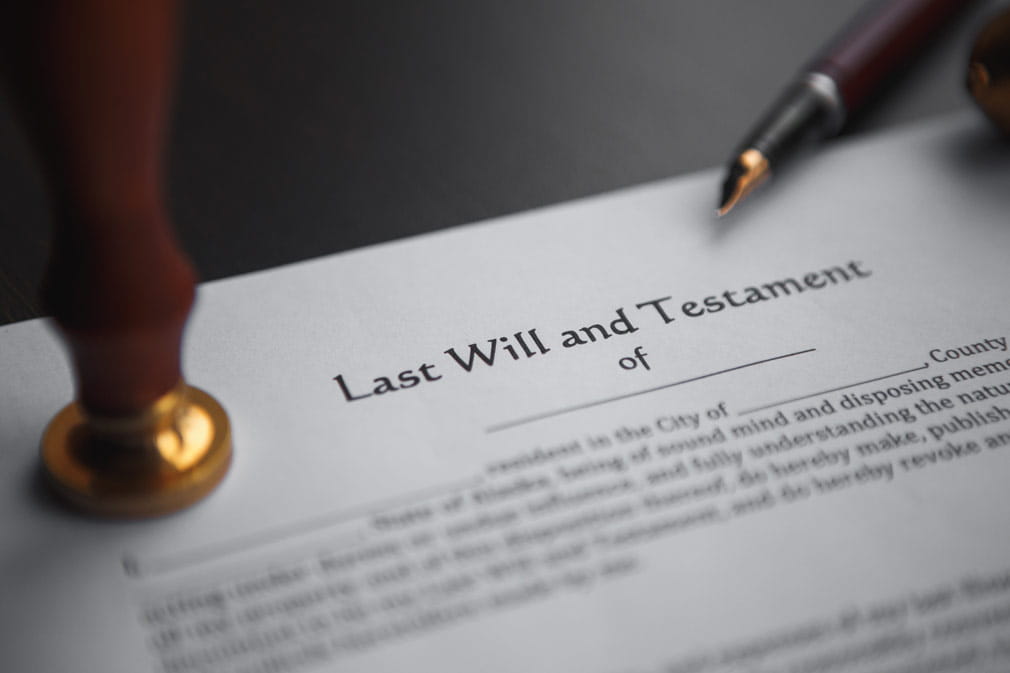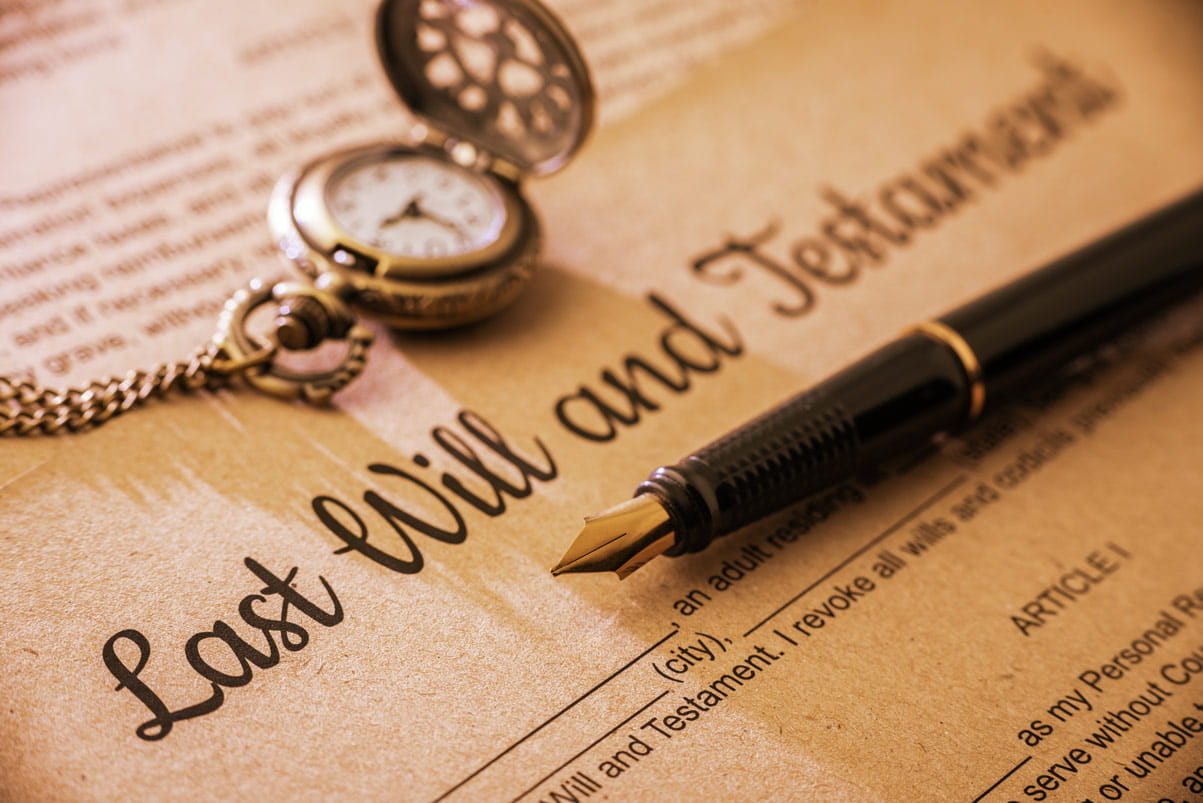
What happens if I die without a will?
Learn how a person’s estate is shared out if they die without leaving a will.

Learn how a person’s estate is shared out if they die without leaving a will.
If someone dies and hasn’t left a valid will, the rules of intestacy apply during the probate process. This means the deceased person’s estate is sorted according to UK Government rules.
According to the charity Will Aid, nearly half of those aged 55 to 79 don’t have a will in place. But while the thought of focusing on your final wishes can be off-putting, it’s a simple way to protect your loved ones.
But what are the intestacy rules? How do they settle the deceased person's estate? And what happens if no relatives can be found? Our simple guide to intestacy and inheritance provides all the information you might need.
The rules of intestacy decide what happens to the estate of someone who dies intestate or without leaving a will.
Under the rules, the estate passes to family members, such as spouses or children, in a specific priority order. The process does not consider any wishes the deceased person may have shared in their lifetime. This is why it’s so important to write a will.
It’s also possible to be ‘partially intestate’. This can happen where someone has a valid will but some of the assets can't be passed on.
Intestacy rules follow a logical pattern. Your estate passes to your closest living relative or relatives, starting with your spouse or civil partner – even if you’re separated but not divorced. Wherever the estate goes, inheritance tax will be due.
The Government has a useful intestacy tool to show how your estate is shared out if there’s no will.
The rules of intestacy will also determine who is responsible for executing the estate, with the responsibility usually falling to whoever is first in line to inherit.
That means this role, which is called the administrator rather than the executor when someone dies intestate, usually goes to a family member.
All married and civil partners will inherit via intestacy rules if they were legally married or in a civil partnership at the time of death. If you leave behind children, grandchildren, great-grandchildren and a spouse or civil partner, your partner inherits:
Your children take the other half. But if there are no children, your partner inherits everything.
Under intestacy rules, unmarried couples have no rights. This means that if you die, your cohabiting partner won't receive a penny from your estate. It automatically goes to your children or your next closest living relative.
If your children have died, your estate passes to your grandchildren or greatgrandchildren. If you don’t have any, the order of priority is as follows:
What happens to jointly owned properties upon death depends on how the title deeds show ownership. In England, Wales and Northern Ireland, you can either be ‘joint tenants’ or ‘tenants in common’.
If one of the joint tenants dies, the other automatically becomes the sole owner of the property. For example, if a mother and a daughter are joint tenants of a property and the mother passes away, the property passes to the daughter.
Things are different if you’re tenants in common. In this scenario, when one of the property owners passes away, their share of the property passes through their will rather than directly to the other owner. If there’s no will, the rules of intestacy apply, and the estate is shared between relevant family members.

We partner with Co-op Legal Services to offer advice and services for you and your family.
If someone dies leaving no living relatives who can be traced, their estate passes to the Crown. The exception to this is:
Close friends, carers, unmarried partners and relatives by marriage cannot inherit. Long-lost relatives occasionally turn up or are traced by heir hunters or probate detectives. They can lodge inheritance claims for ownerless property with the Treasury Solicitor’s Department (or the Crown Office and Procurator Fiscal Service in Scotland). If they're successful, the estate and any interest earned on it will be legally passed to the beneficiary.
It’s possible to alter how an estate is shared out after someone dies without leaving a will. You need to make a Deed of Family Arrangement, which is also known as a Deed of Variation. This allows someone who is excluded from inheriting (such as a surviving, unmarried partner) to get a share of the estate. However, for this to happen, all legal beneficiaries affected must agree to the change in writing.
To avoid getting caught out and ensure your wishes are followed, it is important to write a will. Please note that the rules are slightly different in Scotland and Northern Ireland.
When a will is invalid, one of two scenarios unfold. If the deceased person previously created a legally valid will, their estate is divided up according to the contents of that will. If the deceased person never made a valid will, the estate is distributed according to intestacy rules. Some of the reasons a will may be considered invalid include:
A will can also be revoked if you marry or form a civil partnership, unless it states that it was ‘written in contemplation of the marriage’.
Even if you’ve not tied the knot since making a will (or are planning to), it’s sensible to review your will regularly.
You can challenge a will if you believe it’s invalid.
To ensure your will is valid and your estate goes to your loved ones, you could get help from:
Whether you have questions about wills and estate planning or just want to find out more, the expert team are on hand to help.
Mon - Thu 9:00am - 7:15pm
Fri 9:00am - 6.15pm
Sat - Closed
Sun - Closed
Excluding bank holidays
Saga is a registered trading name of Saga Personal Finance Limited, which is registered in England and Wales (company number 3023493). Registered office 3 Pancras Square, London, N1C 4AG. Saga is not authorised or regulated by the Solicitors Regulation Authority (SRA). All legal services are provided by Co-op Legal Services. Co-op Legal Services is a trading name of Co-operative Legal Services Limited which is authorised and regulated by the SRA, under registration number 567391.



Learn everything you need to know about the different types of Will bequests in our complete guide.
.jpg?la=en&h=550&w=1440&hash=D75E80A351D1CBC72428B436C3C3EE4F)

Talk to an expert about your current needs and future wishes. Find out what legal plans you might want to make.



We partner with Co-op Legal Services to offer advice and services for you and your family.


Let’s make sure you have the right plans in place for you and your loved ones.